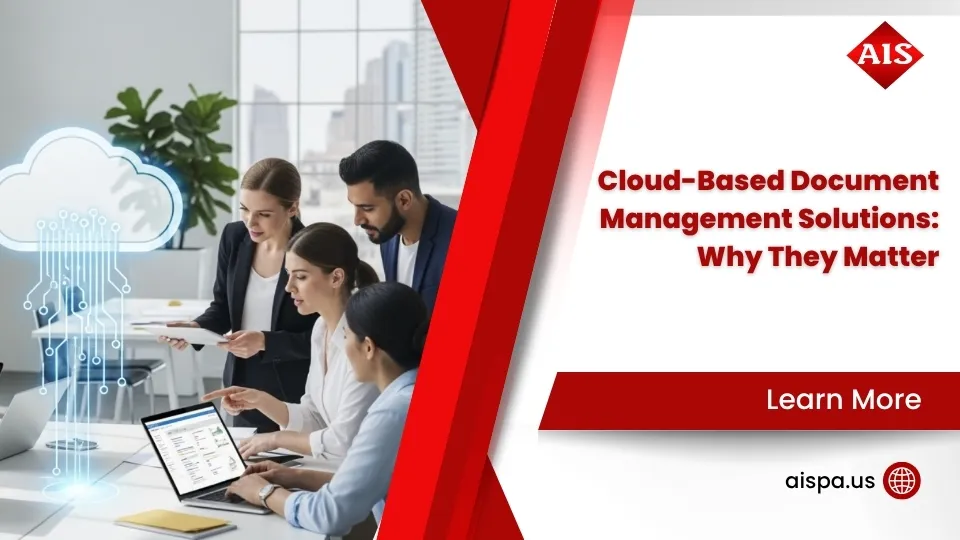How much does cloud storage cost – Choose According to Your Need
How much does cloud storage cost?
Our lives are increasingly intertwined with data. From cherished photos and important documents to essential work files, the information we accumulate can quickly overwhelm our local storage capacities. Cloud storage emerges as a saving grace, offering a secure and accessible haven for our digital treasures. Think of it as a vast online storage, readily available from any internet-connected device.
But before diving headfirst into the cloud, understanding cloud storage costs is crucial. Just like renting a physical storage unit, different cloud storage providers offer various plans with varying price tags. Failing to grasp these cost structures can lead to unexpected bill shock. Fortunately, this comprehensive guide will equip you with the knowledge to navigate the world of cloud storage pricing and select the most cost-effective solution for your specific needs.
A Breakdown of Key Cost Components
The Pillars of Cloud Storage Pricing
When it comes to cloud storage costs, several fundamental elements play a critical role. Understanding these building blocks will empower you to make informed decisions:

-
Storage Capacity (GB, TB): Simply put, the more data you store, the higher the cost. Cloud storage providers typically offer plans with varying storage capacities, measured in gigabytes (GB) or terabytes (TB). For instance, a personal plan might offer 10 GB of storage, while a business plan could provide 1 TB or even more.
-
Storage Class (Standard, Coldline, Archive): Not all data is created equal. Cloud storage providers offer different storage classes tailored to your data access needs. Standard Storage is the most readily accessible option, ideal for frequently used files. Coldline Storage is a more economical choice for data that is accessed less frequently, while Archive Storage caters to rarely accessed information, offering the lowest storage costs.
-
Data Transfer (Ingress, Egress): Think of data transfer as the movement of your information into and out of the cloud. Ingress fees apply when you upload data to your cloud storage, while egress fees come into play when you download information. Some providers offer unlimited storage, but egress fees can vary depending on the amount of data downloaded and the destination (downloading to your computer versus another cloud service).
-
Operations (Requests, Retrievals): Certain cloud storage providers might charge per operation, such as retrieving a file or listing your stored data. These per-operation fees are typically minimal but can add up if you frequently access your data.
-
Account Features (Bandwidth, Support): Some cloud storage providers offer additional features, like increased bandwidth for faster data transfer or premium support options. These features often come at an additional cost.
In essence, understanding these cost components equips you to compare cloud storage plans effectively and choose the one that aligns best with your data storage habits and budget.
Unveiling the Hidden Costs
While the core cost components like storage capacity and data transfer are straightforward, a few additional factors can subtly impact your cloud storage bill:
-
Provider and Plan Selection: Different cloud storage providers have varying pricing structures. For instance, some providers offer flat monthly fees for a specific storage capacity, while others employ a pay-as-you-go model. Similarly, plan options within a single provider can cater to individual users, small businesses, or large enterprises, each with distinct pricing structures. Carefully evaluating your storage needs and comparing plans across providers will help you find the most cost-effective solution.
-
Storage Duration and Access Frequency: The length of time you plan to store your data and how often you need to access it can significantly impact your costs. For instance, storing data for several years might be cheaper with a provider offering long-term storage discounts. Similarly, if you frequently access your data, choosing a storage class optimized for frequent retrieval can save you money compared to a more economical archive option.
-
Data Location and Redundancy: The geographical location where your data is stored and the level of redundancy chosen can also influence costs. Storing data in a region closer to your primary location might incur lower egress fees when downloading information. However, opting for higher data redundancy levels, which ensures greater protection against data loss, might come at an additional cost.
By considering these often-overlooked factors, you can make informed decisions that optimize your cloud storage costs without compromising on essential features or data security.
Taming the Cloud Storage Bill: Cost-Saving Strategies
Understanding the cost components empowers you to become a savvy cloud storage user. Here are some practical tips to optimize your spending:
-
Choose the Right Storage Class: Align your storage class with your data access needs. Frequently used files belong in Standard Storage, while infrequently accessed data thrives in Coldline or Archive options.
-
Manage Your Data Lifecycle: Regularly review your stored data and consider archiving less frequently accessed information to lower-cost storage classes. Many providers offer automated lifecycle management tools to streamline this process.
-
Leverage Free Tiers and Promotions: Several cloud storage providers offer free tiers with limited storage capacities, perfect for individual users with basic needs. Additionally, introductory offers and promotions can help you test a service before committing to a paid plan.
By implementing these cost-saving strategies, you can ensure your cloud storage solution remains budget-friendly without sacrificing functionality or data security.
Cloud Storage Pricing Comparison: Finding the Perfect Fit

Popular Cloud Storage Providers and Their Pricing
Now that you’re armed with the knowledge of cloud storage cost components, let’s explore some popular providers and their pricing structures:
-
Google Drive: A household name, Google Drive offers a free tier with 15 GB of storage, ideal for basic needs. Paid plans start at $1.99 per month for 100 GB and scale upwards, catering to individual and business users.
-
Dropbox: Another well-known option, Dropbox offers individual plans starting at $9.99 per month for 2 TB of storage. Team and enterprise plans provide additional features like shared folders and user management, making them suitable for businesses.
-
Microsoft OneDrive: Integrated with the Microsoft 365 suite, OneDrive offers a free tier with 5 GB of storage. Paid plans start at $6 per month for 100 GB and are often bundled with Microsoft Office applications, making them attractive for those already invested in the Microsoft ecosystem.
-
Amazon S3: A powerful cloud storage solution from Amazon Web Services (AWS), S3 offers a pay-as-you-go model with various storage classes tailored to different access needs. While the pricing structure might seem complex at first glance, S3 can be cost-effective for users with specific storage requirements.
-
Backblaze B2 Cloud Storage: This provider focuses on simplicity and transparency. Backblaze B2 offers a pay-as-you-go model with a flat rate per GB stored, making it a budget-friendly option for users who know their storage needs precisely.
It’s important to remember that the “best” provider depends on your specific needs. Carefully evaluate your storage requirements, access frequency, and budget before making a decision.
Matching Your Needs to the Right Cloud Storage Solution
Finding the ideal cloud storage provider boils down to understanding your specific requirements. Different providers cater to diverse user groups:
Individual Users: For those with basic storage needs, prioritizing providers with generous free tiers or affordable individual plans is wise. Providers like Google Drive, with its 15 GB of free storage, or Dropbox, offering 2 TB for a reasonable monthly fee, can be excellent options.
Small Businesses: Striking a balance between storage capacity and cost is crucial for small businesses. Providers like Microsoft OneDrive, which integrates seamlessly with Microsoft Office applications, or Backblaze B2 Cloud Storage, with its transparent pay-as-you-go pricing, can offer a good balance of features and affordability.
Large Businesses: Scalability and advanced features are paramount for large enterprises. Cloud storage giants like Amazon S3, with its vast storage options and robust functionality, can cater to the demanding needs of large organizations.
Remember, the “one-size-fits-all” approach doesn’t apply to cloud storage. Carefully assess your storage requirements, data access frequency, and budget to find the provider that aligns best with your unique needs.
Cloud Storage Cost Calculator
Ever wished for a crystal ball to predict your cloud storage bill? Fear not! Cloud storage cost calculators emerge as valuable tools to estimate your storage expenses with different providers. These interactive tools take into account your anticipated storage capacity, data access patterns, and desired features, providing a projected cost breakdown for various cloud storage services.
Utilizing these calculators empowers you to compare pricing structures across providers and identify the most cost-effective solution for your specific needs.
Cloud Storage Cost Equation
While we’ve explored core cost components, additional factors can influence your cloud storage bill, particularly for specific use cases:
Hidden Costs for Specific Needs
-
Data Encryption: For enhanced security, some providers offer data encryption features. These features might come at an additional cost, particularly for large datasets requiring encryption.
-
API Access: Programmatic access to your cloud storage through APIs (Application Programming Interfaces) can be beneficial for automation and integration with other applications. However, certain providers might charge extra for API access, so factor this in if you plan on utilizing this functionality.
-
Regulatory Compliance: For businesses subject to strict data privacy regulations, specific compliance features within cloud storage solutions might be necessary. These features often incur additional costs, so ensure your chosen provider offers the necessary compliance certifications at a price point that aligns with your budget.
Understanding these potential additional costs empowers you to make informed decisions when selecting a cloud storage provider.
Storage Duration and Retention Policies
The length of time you plan to store your data significantly impacts cloud storage costs. Here’s why:
-
Long-term storage: Many providers offer discounts for extended storage periods. If you plan on archiving data for years, choosing a provider with long-term storage incentives can save you money compared to a provider with a flat monthly rate.
-
Data retention policies: Businesses often have legal or regulatory requirements to retain data for a specific period. When evaluating cloud storage plans, ensure the chosen provider aligns with your data retention policies to avoid incurring unexpected storage charges for data that needs to be archived for extended periods.
By considering these factors, you can ensure your cloud storage solution caters to your long-term storage needs without exceeding your budget.
Cloud Storage Security Features
Storing sensitive data in the cloud demands robust security measures. Here’s how security features can impact cloud storage costs:
- Security features: Advanced security features like two-factor authentication and data encryption at rest can significantly enhance data protection. While these features are often crucial for safeguarding sensitive information, they might come at an additional cost compared to basic storage plans.
The decision ultimately boils down to a risk-benefit analysis. Evaluate the type of data you plan to store and the level of security required. Choose a provider that offers the necessary security features without breaking the bank.
By understanding these additional cost considerations, you can make well-informed decisions when selecting a cloud storage solution that balances security, functionality, and affordability.
What People May Also Ask
Is there any free cloud storage available?
Absolutely! Many cloud storage providers offer generous free tiers. For instance, Google Drive provides 15 GB of free storage, while Dropbox offers a limited free plan.
What is the difference between cloud storage and online backup?
Cloud storage offers a flexible solution for storing and accessing all your data files. Online backup, on the other hand, focuses on creating a copy of your data for disaster recovery purposes. While some cloud storage services offer basic backup features, dedicated online backup solutions often provide more advanced scheduling and version control functionalities.
How can I migrate my data to cloud storage?
Most cloud storage providers offer user-friendly tools to upload your data. You can typically drag-and-drop files or entire folders from your computer to the cloud storage interface. Some providers also offer desktop applications that streamline the migration process.
Is cloud storage secure?
Security is a top priority for cloud storage providers. Reputable services utilize robust encryption methods to safeguard your data both at rest and in transit. Many providers also offer advanced security features like two-factor authentication for added protection.
Conclusion
In conclusion, navigating the world of cloud storage costs can feel overwhelming. However, by understanding key factors like storage capacity, data transfer fees, and storage classes, you can make informed decisions. Remember, the “one-size-fits-all” approach doesn’t apply.
Evaluate your specific needs and leverage online resources like cloud storage cost calculators to find the perfect provider that balances functionality, security, and affordability for your unique cloud storage journey.
For more information and services you can contact us for a free quote and estimation.
- Address: 165 Veterans Way, Warminster, PA 18974
- Email: sales@aispa.us
- Call Us: (215) 999-8445











